Marking a Milestone
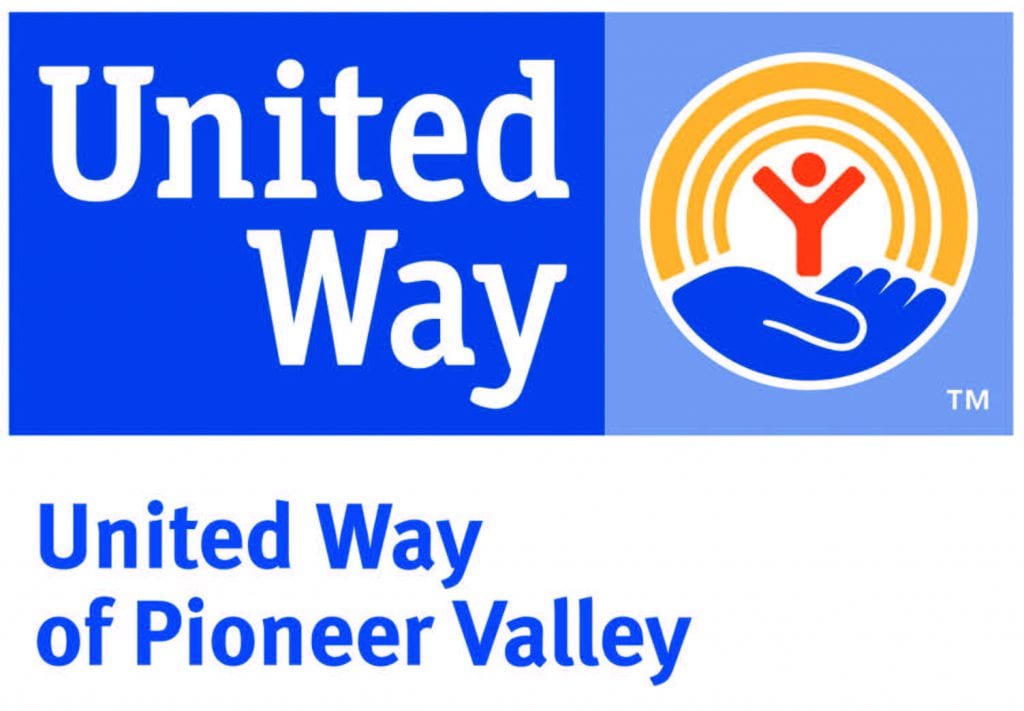 Over the years, Paul Mina says, the name over the door and on the stationery has changed many times — previous incarnations include Community Chest, Red Feather, and United Fund — but the basic mission of the United Way of Pioneer Valley (UWPV) certainly hasn’t.
Over the years, Paul Mina says, the name over the door and on the stationery has changed many times — previous incarnations include Community Chest, Red Feather, and United Fund — but the basic mission of the United Way of Pioneer Valley (UWPV) certainly hasn’t.
“The names have changed, the faces have changed, but the work is the same,” said Mina, who serves as administrator of both the United Way of Pioneer Valley and the United Way of Tri County in Framingham in an arrangement that speaks to the many fiscal challenges the organization has confronted in recent years and the need to consolidate and achieve economies of scale. “And that is, very simply, to improve the quality of life for people living in the Pioneer Valley area.”
As he talked with BusinessWest about this mission, on the occasion of the agency’s centennial (the actual birthday is Jan. 10), Mina was looking through some old news clippings, brochures, and assorted memorabilia that had been gathered to help with various efforts to mark this milestone. Together, these pieces help tell the story, he said, adding that the United Way has certainly evolved, as its name has, over the years.
But, as he noted, the underlying mission hasn’t.
“I look for a golden thread throughout the narrative,” he said as he thumbed through a large scrapbook and collections of news stories and promotional material. “And through all of that narrative, all of that archival material … the golden thread that links 1921 to 2021 is helping to improve people’s lives; that’s the endgame.

Paul Mina
“The names have changed, the faces have changed, but the work is the same.”
“And it’s very significant to note that it was never about giving a handout — it was always about giving a helping hand — and to do it with as much dignity and respect as possible,” he continued. “Whether it’s 1921 or 2021, there are still people who need a helping hand so they can move from dependence to independence and self-sufficiency. That has been the goal, it is the goal, and it will always be the goal.”
It is somewhat fitting, said Mina, that the agency’s milestone celebration comes in the midst of a crisis — the COVID-19 pandemic — because, while the United Way of Pioneer Valley has been there to serve those in need every month of every year since January 1921, it has always come forward and stepped up at especially challenging times to meet greater and often different needs.
With that, Mina offered some history lessons. During World War II, for example, the agency, historically linked very closely with the Red Cross, worked to provide a number of services to returning veterans, and in the case of the local chapter, there was a specific focus on helping to reunite families broken apart by the war, and then help them assimilate to a very changed landscape.
“There was a lot of upheaval back home,” he said. “The men were off fighting overseas, the women were in factory jobs … there was a very different kind of assimilation. When a lot of these men came home, their wives, who were basically homemakers prior to them leaving, many of them had good jobs and careers in factories. This wasn’t something that any of them were used to seeing.
“When the men came back, there was a great amount of adjustment that had to take place,” he went on. “The women had to go back to their previous domestic role because the men had to get their jobs back to go back to work. There was a lot of assimilating, and that’s when philanthropy really took off because, now that women had been outside the home, they were involved in many, many things they hadn’t been involved in before, charity being one of them.”
 That’s just one example, he said, noting that the agency has stepped up during other periods of turbulence, change, and need, providing help with everything from administering the polio vaccine in the 1950s to supplying food to the many who needed it during the Great Depression.
That’s just one example, he said, noting that the agency has stepped up during other periods of turbulence, change, and need, providing help with everything from administering the polio vaccine in the 1950s to supplying food to the many who needed it during the Great Depression.
Bringing things right up to the present, Mina noted that, in recent years, the agency has added new services and new ways to help those in need, with everything from prescription savings to financial-literacy efforts to a Mass 211 hotline and its companion suicide-prevention ‘call-to-talk’ line.
And during this pandemic, UWPV, which serves Hampden County, Granby, and South Hadley, has continued that pattern of stepping up.
Indeed, it created a COVID-19 relief fund that including the awarding of grants to roughly 40 organizations, bringing a truckload of 5,000 hot meals to the Food Bank of Western Massachusetts, delivering another truckload of food-relief boxes (20 pounds per box) to the Holyoke Boys & Girls Club for distribution throughout the city, an initiative called Project Toybox that brought 15,000 new toys to affiliated agencies across the region for distribution to young people, and even a drive-up Halloween event at the TD Banknorth building in downtown Springfield, which served to fill a void left by formal and informal bans on trick-or-treating (more on some of these later).
For this issue, BusinessWest talked with Mina about the many things being celebrated as this agency celebrates this milestone, and how the work being carried out during the pandemic is in many ways simply the latest chapter in a century-old story of meeting needs within the community.
Past Is Prologue
To emphasize his repeated points about how things have changed over the past century or so — and how they haven’t — Mina pulled a clipping from the pile he had collected, an advertisement of sorts for something called the ‘Charity Chest,’ and pointed to the date, 1918, and then the headline over the piece:
“Charity is not a pocket for the shiftless to dip into,” it read, with the subhead “Far from it. Charity is a long ways from being a lazy man’s paradise.”
Mina noted that this was a reference to how many looked upon those seeking help in those days. He also noted that the language regarding charitable efforts has long since changed, with those involved no longer making any references to the ‘shiftless’ or the ‘lazy,’ for obvious reasons.

But the rest of the ad could almost run today, he said, noting phrases like these with regard to charity: “Its prime function is to relieve distress. Always has been and always will be. Yet, while giving relief in deserving cases, it does far more than that.” And also: “Its main object is to prevent the cause, thereby vitally affecting you and me and everybody. Distress does not always mean poverty. It may mean misfortune, sickness, or the suffering of innocents from wrongdoing of others. All of these charity tries to prevent.”
Again, some of the language has obviously changed over the years, but those sentiments expressed back at the height of World War I are those that still define the United Way today. As Mina noted, it’s not a handout, but a helping hand, and it has been this way through a host of name changes, affiliations, and partnerships.
Tracing the history of all those names the agency has used, Mina said the organization got its start as the Springfield Community Chest. Later, it became the Springfield Community Chest Red Feather Drive (he still has a red feather mounted in a large frame), with the feather being a symbol of charitable giving for more than 150 years. In fact, he noted, the Red Cross and the Red Feather ran an annual appeal together, before the two organizations separated.
Later, the organization was known under the names United Appeal and United Fund, before United Way came into use in the late 1960s.
Regardless of the name on the door, the organization has been carrying out the same essential mission, said Mina, adding that the agency’s programmatic niche, if that’s the proper phrase for it, can be summed up with three simple words: basic human needs.
Elaborating, he said these include food, clothing, shelter, and programs for children and seniors. “These are the things we focus on for a reason, because these are the things that resonate with people. These are the things, whether people are black, white, no matter what ethnicity or color, people in need are in need. Period. That’s the way it’s always been here, and I’m proud to say that it continues to be that way.”
To put the mission and its importance in perspective, Mina rewound the tape on a phone call he received only a half-hour before he talked with BusinessWest from a woman now living in New Mexico after relocating from this region.
“We helped her and her family when they were very much in need about 10 years ago,” he said. “And she called me to say, ‘I don’t know if you remember me or not … but I’m so and so, and I moved from the Pioneer Valley down to New Mexico, and a friend of mine who still lives there needs a helping hand right now — she’s got it very tough, she’s unemployed. I told her that I would call you because I was treated so well by the United Way back then that I wanted her to know that there was someone they could call that would treat them with dignity and respect and do the best they can for you. They’re not going to promise you the moon, but they’ll do the best to help you.’
“That’s a nice compliment she paid us there,” he went on, “because that’s the goal; that’s the whole goal.”
Where There’s a Will …
Carrying out these goals has never been anything approaching easy, but in recent years, it has become much more difficult, for a number of reasons.
For starters, the way individuals undertake charitable giving has changed, with many now choosing to give directly to specific groups, rather than to larger umbrella agencies like the United Way that funnel money to other nonprofits, said Mina. Meanwhile, the business landscape has changed dramatically through mergers and consolidations, especially in the financial-services sector, and with many small, family businesses simply disappearing from the landscape.

Also, some major corporations have created their own charitable foundations or giving arms, as was the case with MassMutual in Springfield, which had long been one of the primary supporters of the United Way of Pioneer Valley, he said, noting that all these factors have contributed to making the organization itself much smaller — as well as the level of donations it makes annually. Indeed, while this was a $5 million United Way years ago, in terms of total donations, it is now closer to $2 million.
It was these challenges that prompted the UWPV board to explore a number of options when it came to creating efficiencies and reducing the cost of doing business, for lack of a better phrase, while still carrying out its mission. One of those options was a partnership with the United Way of Tri County whereby that agency would share an administrator and also handle backroom operations — bookkeeping, marketing, and others — for this region’s United Way for a percentage of the funds raised during its annual campaign.
The partnership, which came after several years of unsettledness at the UWPV, one that included two CEOs and two interim CEOs between 2016 and 2018, has brought what the board desired most — stability and continued autonomy.
Those qualities have been needed during a pandemic that has further tested the agency, forcing staff to work remotely for a lengthy stretch because its services were not deemed essential, and further impacting its ability to raise money because of the way it has impacted businesses and families alike.
Indeed, this 100th year for the UWPV has been very different, and also very challenging. Need within the communities has obviously increased, but raising funds to meet those needs has been made much more difficult during the pandemic, especially when it comes to the United Way’s time-honored, preferred method of soliciting donations — via payroll deduction.
“Many of the [annual] campaigns are going to be hurting this year because companies are not going back to work in the time frame we need them to,” Mina said earlier this year. “You can’t ask for people to make contributions through payroll deduction if they’re working, and it’s very hard to ask people for support when they themselves are hurting for the first time maybe in many years.
“We’ve found that a very significant number of people in the hospitality industry, restaurants, and food and beverage operations are only a shadow of what they once were,” he went on. “And some of them are never going to recover; a lot of support isn’t there.”
Yet, amid these challenges, the UWPV has found new and different ways to meet its mission during this difficult year, and new and different ways to remind people of the importance of its basic mission.
Through efforts ranging from the food-distribution efforts to the Halloween gathering, the agency was able to meet growing need within the community and address the many ways in which the pandemic impacted day-to-day living and overall quality of life.
Mina was especially proud of Project Toybox.

“It was a wonderful thing,” he said of that initiative. “A lot of the kids that live in the urban area don’t have a backyard, they couldn’t go to the park, they weren’t allowed to congregate … so we figured this was a great opportunity to give them something they could do indoors.”
All this came on top of the annual Stuff the Bus program, which, as that name suggests, fills a school bus each August with age-appropriate backpacks with all the school supplies kids need.
This year, the agency filled 2,600 such backpacks, but in this era of COVID, the exercise was quite bit a different than it has been in previous years.
“It was difficult to come by this stuff because it’s usually donated by the public,” said Mina. “People come to Six Flags, and they get a free roller-coaster ride when they bring items for the backbacks. There’s also a huge collection point at the Holyoke Mall. All those things were not allowed this year.”
So the agency relied instead on a large donation from the MassMutual Foundation as well as some money from the COVID-19 Relief Fund to purchase the needed items at a discounted price.
Overall, these various efforts have been a continuation of that golden thread Mina mentioned earlier, a concerted effort to enable individual donors to collectively make a huge difference in the lives of countless people.
“It’s about empowering the masses to do things that they can’t do alone,” said Mina in summing it all up. “That’s why payroll deduction, which has been the hallmark of the United Way since its inception, is so important. It allows people who don’t have money in the bank, who aren’t necessarily individuals of high net worth, to be able to take a little money out of their paycheck every week, so, at the end of the year, they might have a $52 donation. That $52 donation, added together with the other folks at their company who do the same thing and give a dollar a week, ends up being an enormous amount of money. But they could never do that on their own if they had to give a lump sum.”
Finding a Way
Looking to the future, though, payroll deduction is becoming a less-effective way to raise money, for those reasons mentioned earlier, he said. Meanwhile, instead of channeling funds to other agencies, the United Way will be looking to provide more direct services to the residents of this region.
“We just finished a needs assessment, and 90% of the respondents were donors, and of those 90%, 82% thought that the model we had of funding agencies to do good work, to be a middleman of sorts, was not a model that is modern; it’s not a model that they’re willing to continue to support at the levels that they have in the past.
“They want to know that their contribution is directly impacting things,” he went on. “So we looked at the areas that these donors were identifying as gaps, and we put that together with some intelligence work we did on our own, plus what other agencies were telling us, and we identified three huge gaps that we’re going to fill: food insecurity, continuation and expansion of the call-to-talk and Mass 211 lines, and youth-development programs.
“These are our core areas,” he explained. “The survey only reinforced what we already knew — that our niche is basic human needs and helping people improve their quality of life.”
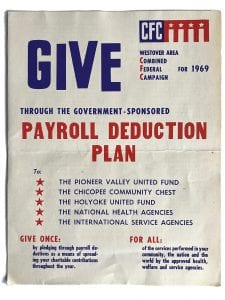
Looking ahead to 2021, Mina said it will be a milestone year for the United Way, and the occasion will be marked in a number of ways.
But for many of the region’s residents, there won’t be much to celebrate. Indeed, while 2020 was the roughest year in memory for many, the coming months are projected to be in some ways even worse as those basic human needs he mentioned continue to mount, healthcare issues multiply because of the many effects of the pandemic, and resources become more scarce.
“There’s going to be a major shortfall in resources in the next year because COVID is having devastating effects on our economy as well as our health,” he said. “But we’ll figure out a way to deal with it; we’ll figure out a way to continue doing our job. We’ve faced tough times before — we’ve faced World War I, World War II, the Korean conflict, Vietnam, the ’60s … we’ve been there through all these things, and we’ll be there through this, too.”
Figuring out a way and doing its job. This is what the United Way of Pioneer Valley has been doing for a century now. And as its second century starts, this track record of success is certainly worth celebrating.
George O’Brien can be reached at [email protected]



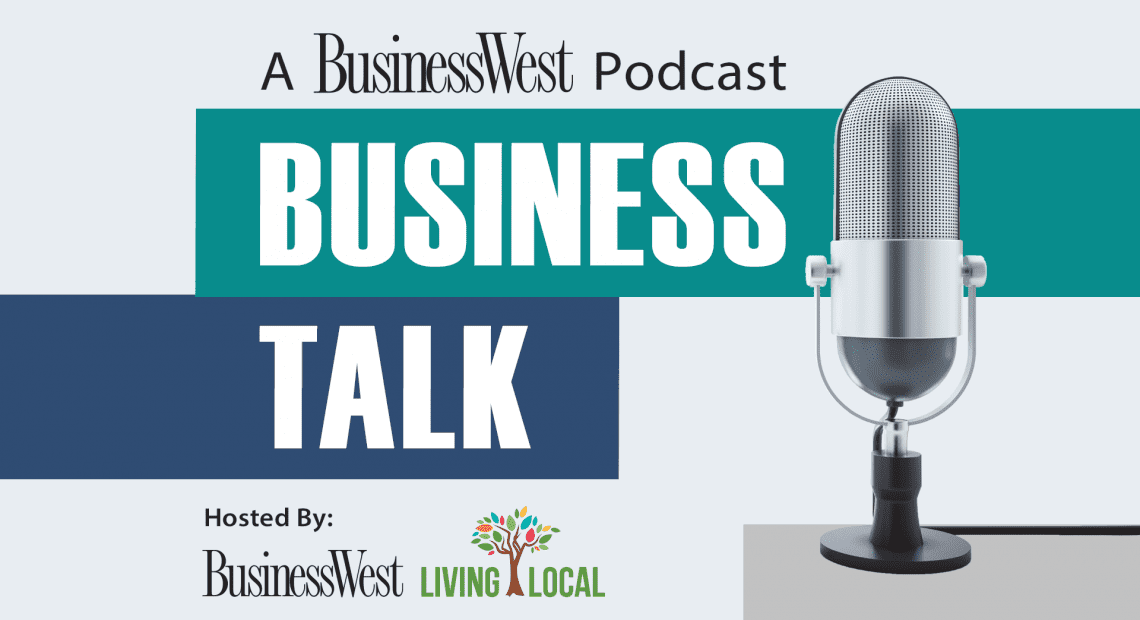
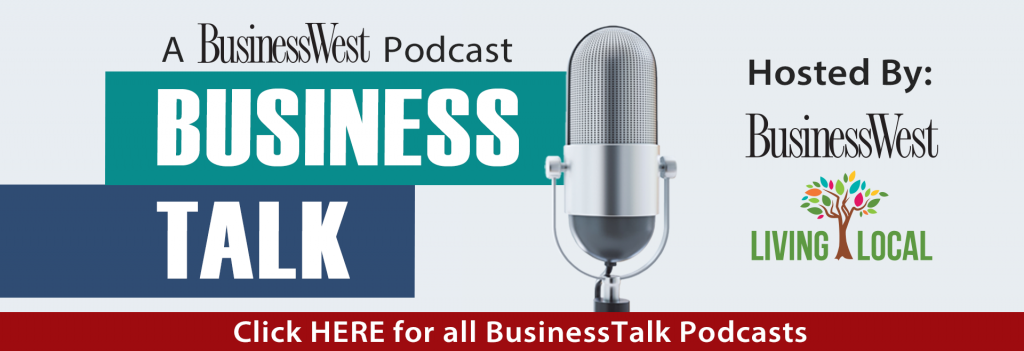









 Entering a new year, there are always question marks about the economy and speculation about the factors that will determine just what kind of year it will be. For 2021, there are far more questions — and fewer definitive answers — and the speculation comes in layers. A great many of them. Much of this speculation involves the pandemic and, with vaccines becoming available to ever-greater numbers of people, whether we are truly seeing light at the end of the tunnel, the beginning of the end (of the pandemic), or any of those other phrases now being used so frequently. But there are other things to speculate about as well, including what the landscape will look like when and if things to return to normal, or a ‘new normal,’ another phrase one hears a lot these days. Will the jobs that have been lost come back? Will people pick up old habits regarding going to restaurants, the movies, the doctor’s office, or sporting events? Will businesses return to their offices? And will their offices be the same size and in the same community? Another phrase you’re hearing — and will read in the stories that follow — is ‘pent-up demand.’ Many businesses, from eateries to colleges and universities to medical practices, are counting on it, but will it actually materialize? These are all good questions, and for some answers, we turned to a panel of experts for a roundtable discussion, without the roundtable. Collectively, they address the question on everyone’s minds: what is the outlook for 2021?
Entering a new year, there are always question marks about the economy and speculation about the factors that will determine just what kind of year it will be. For 2021, there are far more questions — and fewer definitive answers — and the speculation comes in layers. A great many of them. Much of this speculation involves the pandemic and, with vaccines becoming available to ever-greater numbers of people, whether we are truly seeing light at the end of the tunnel, the beginning of the end (of the pandemic), or any of those other phrases now being used so frequently. But there are other things to speculate about as well, including what the landscape will look like when and if things to return to normal, or a ‘new normal,’ another phrase one hears a lot these days. Will the jobs that have been lost come back? Will people pick up old habits regarding going to restaurants, the movies, the doctor’s office, or sporting events? Will businesses return to their offices? And will their offices be the same size and in the same community? Another phrase you’re hearing — and will read in the stories that follow — is ‘pent-up demand.’ Many businesses, from eateries to colleges and universities to medical practices, are counting on it, but will it actually materialize? These are all good questions, and for some answers, we turned to a panel of experts for a roundtable discussion, without the roundtable. Collectively, they address the question on everyone’s minds: what is the outlook for 2021?
 Over the years, Paul Mina says, the name over the door and on the stationery has changed many times — previous incarnations include Community Chest, Red Feather, and United Fund — but the basic mission of the
Over the years, Paul Mina says, the name over the door and on the stationery has changed many times — previous incarnations include Community Chest, Red Feather, and United Fund — but the basic mission of the 
 That’s just one example, he said, noting that the agency has stepped up during other periods of turbulence, change, and need, providing help with everything from administering the polio vaccine in the 1950s to supplying food to the many who needed it during the Great Depression.
That’s just one example, he said, noting that the agency has stepped up during other periods of turbulence, change, and need, providing help with everything from administering the polio vaccine in the 1950s to supplying food to the many who needed it during the Great Depression.







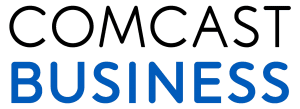



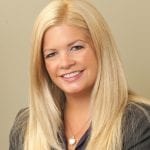
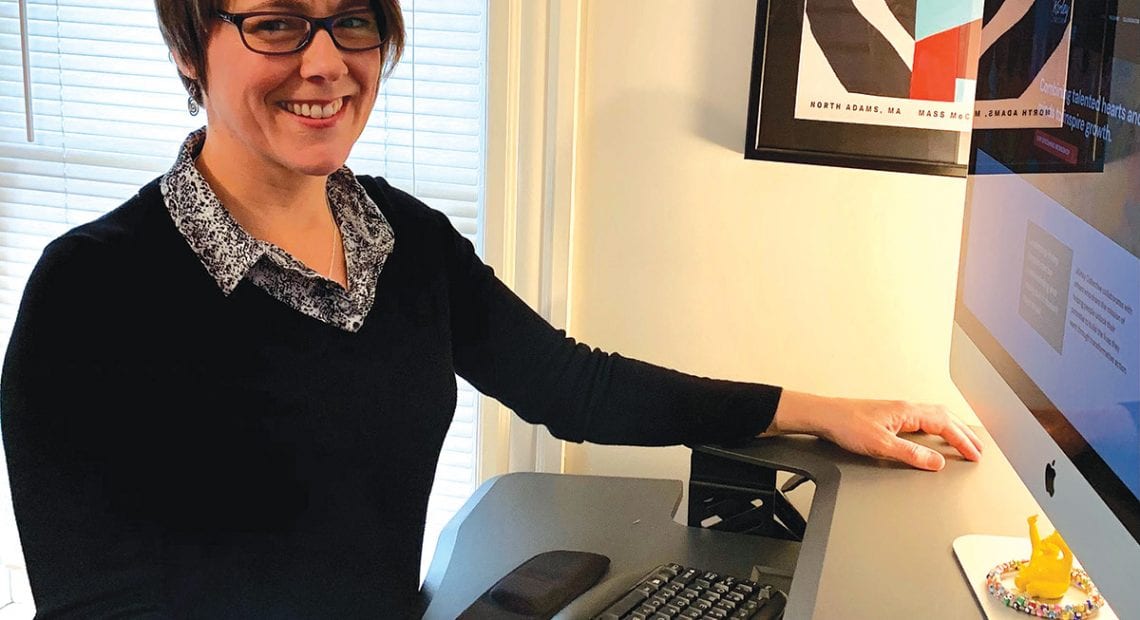
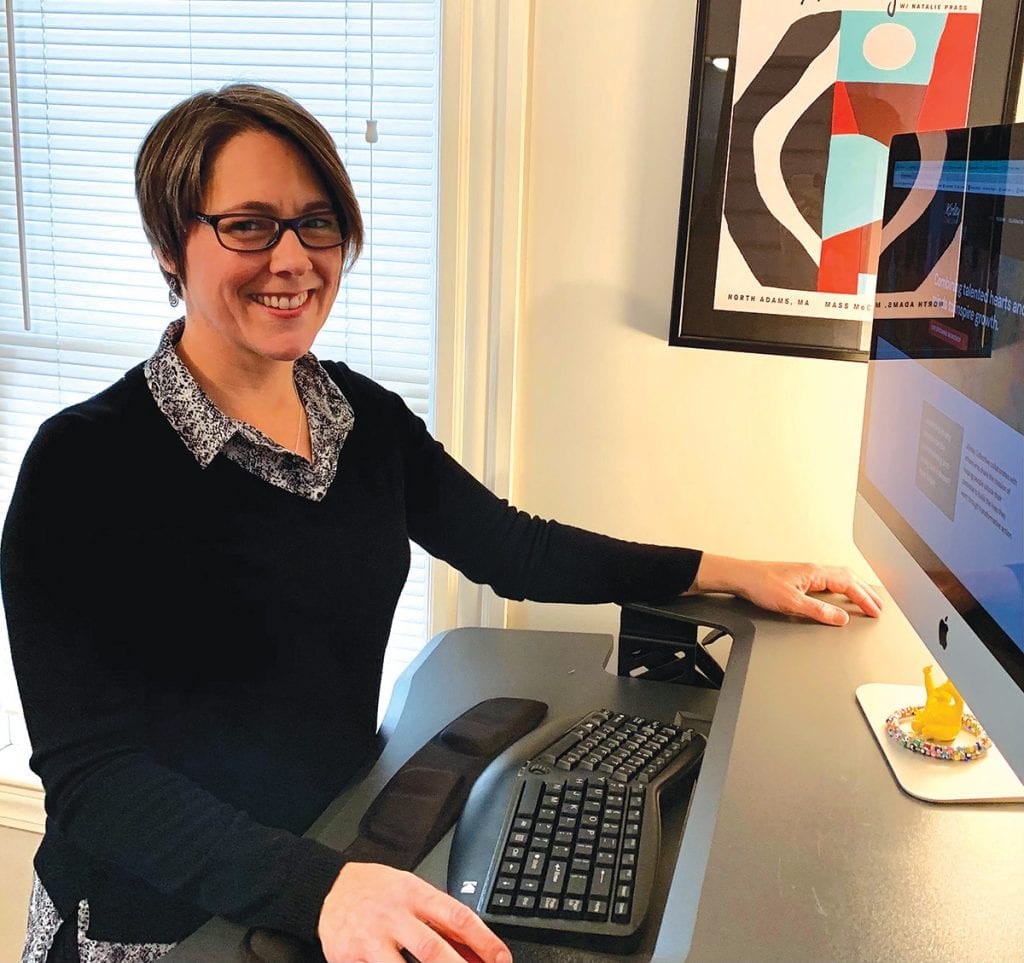 When Jessi Kirley took the reins at the Family Business Center in 2018, she was looking for a new challenge — and some meaning.
When Jessi Kirley took the reins at the Family Business Center in 2018, she was looking for a new challenge — and some meaning.

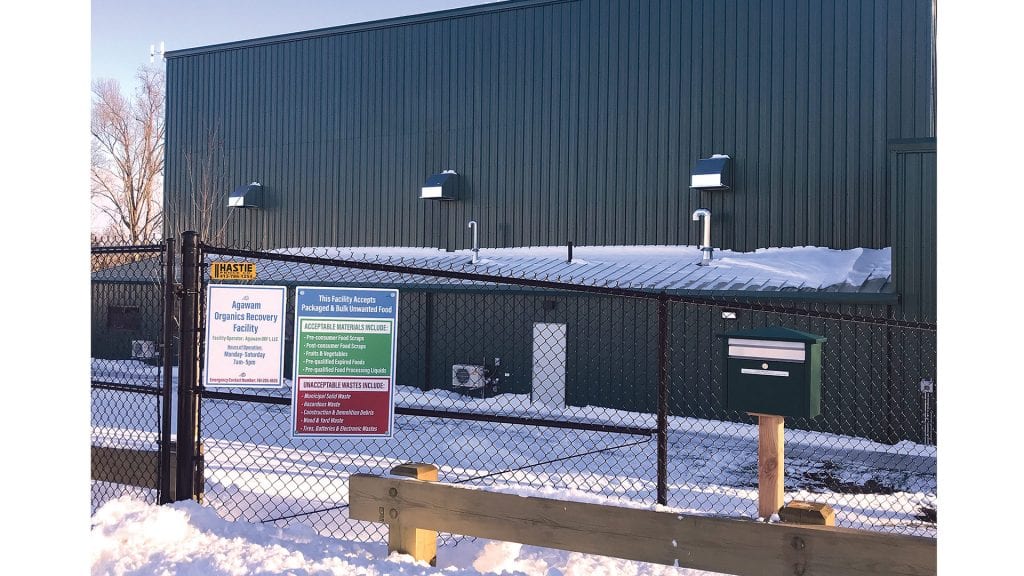 As the world looks to generate energy from different sources and reduce waste, a new facility just opened in Agawam that contributes to both efforts.
As the world looks to generate energy from different sources and reduce waste, a new facility just opened in Agawam that contributes to both efforts.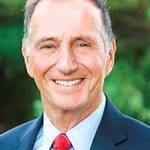





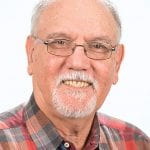
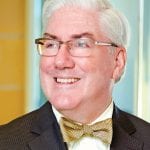

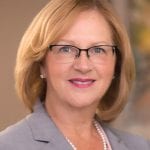
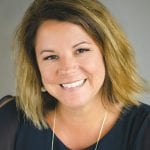





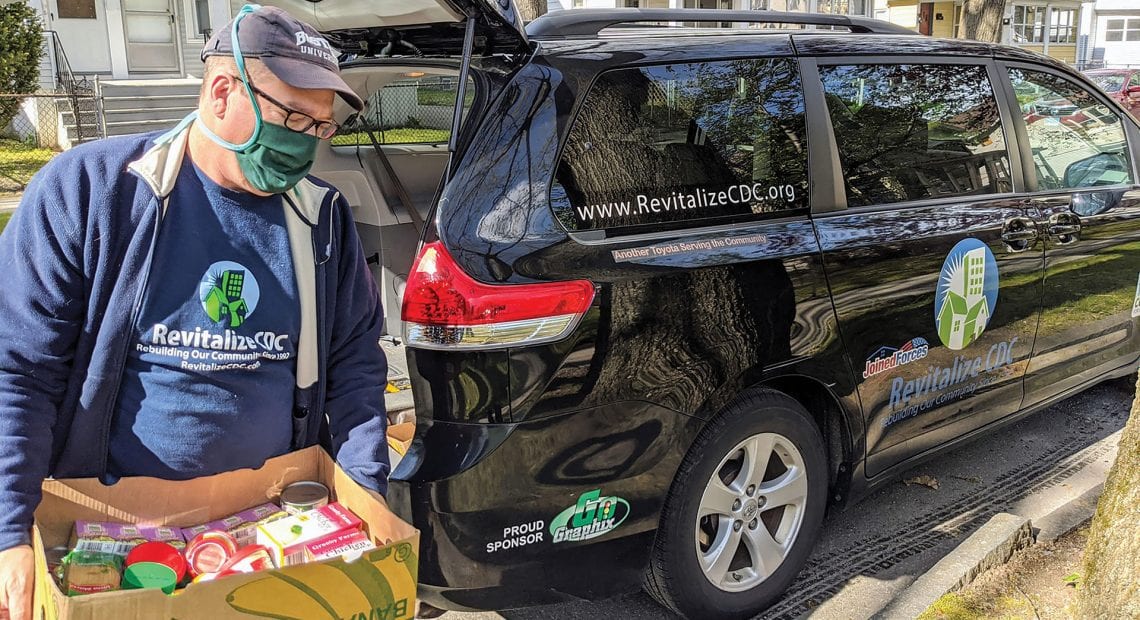
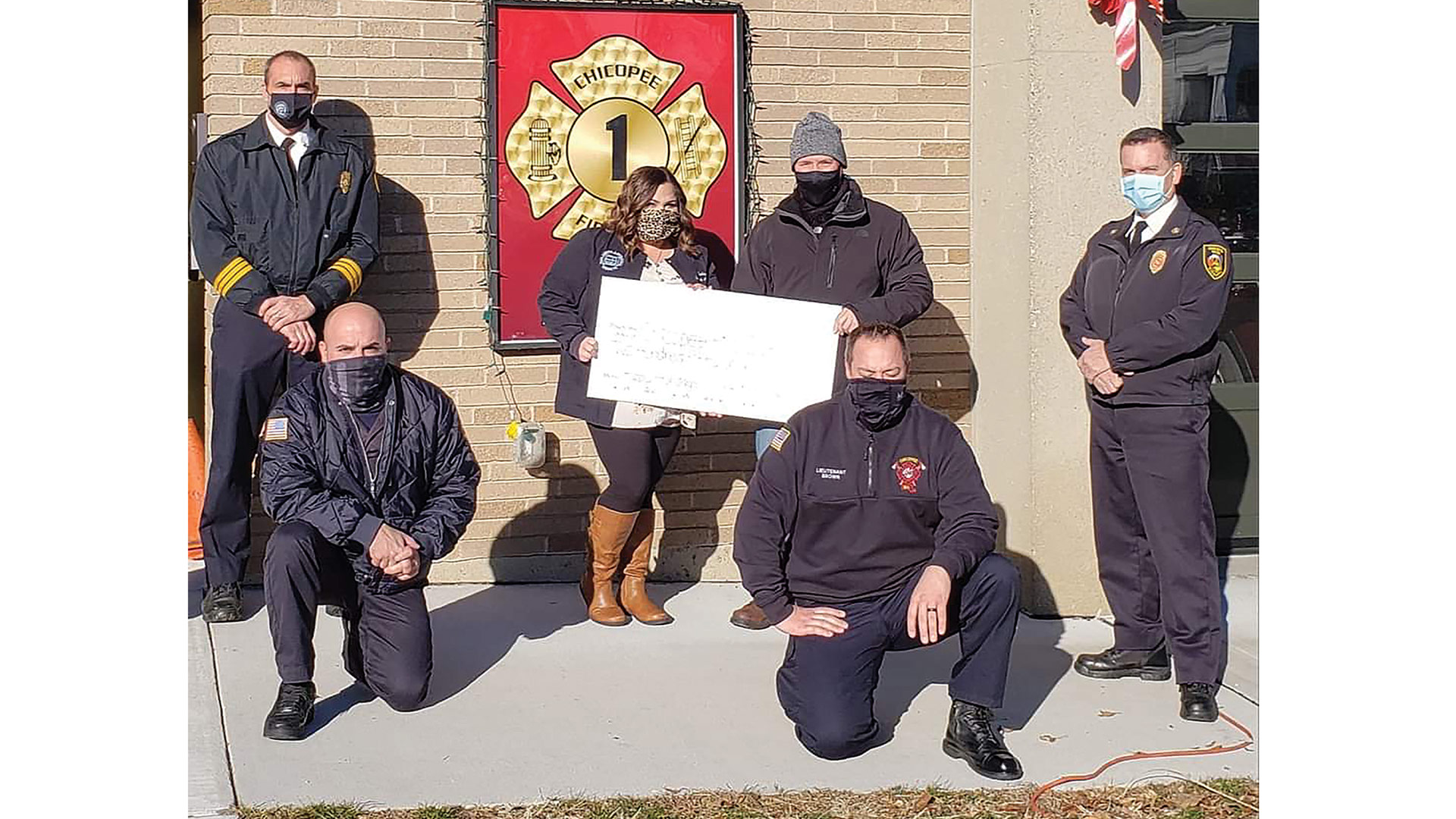

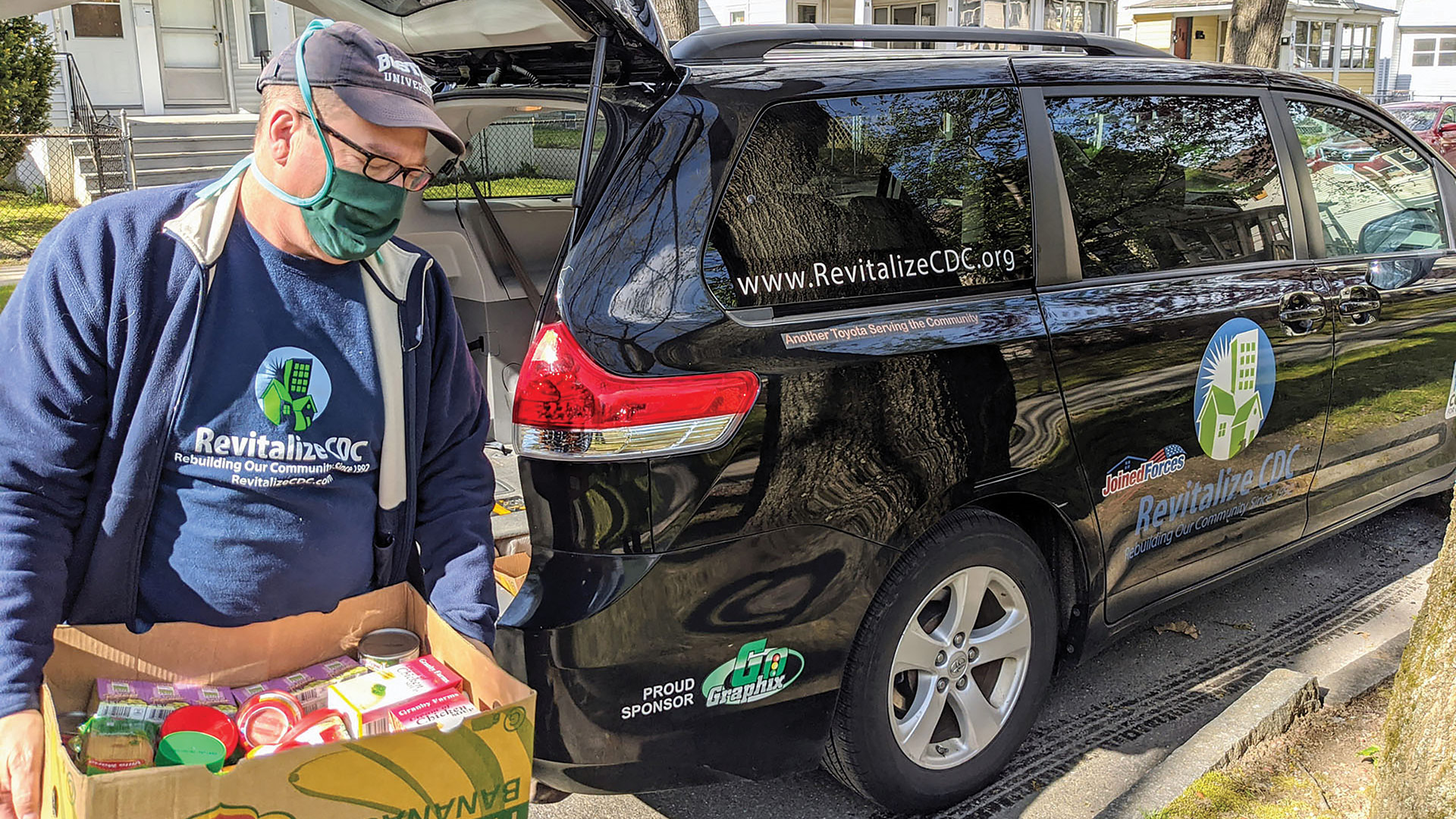
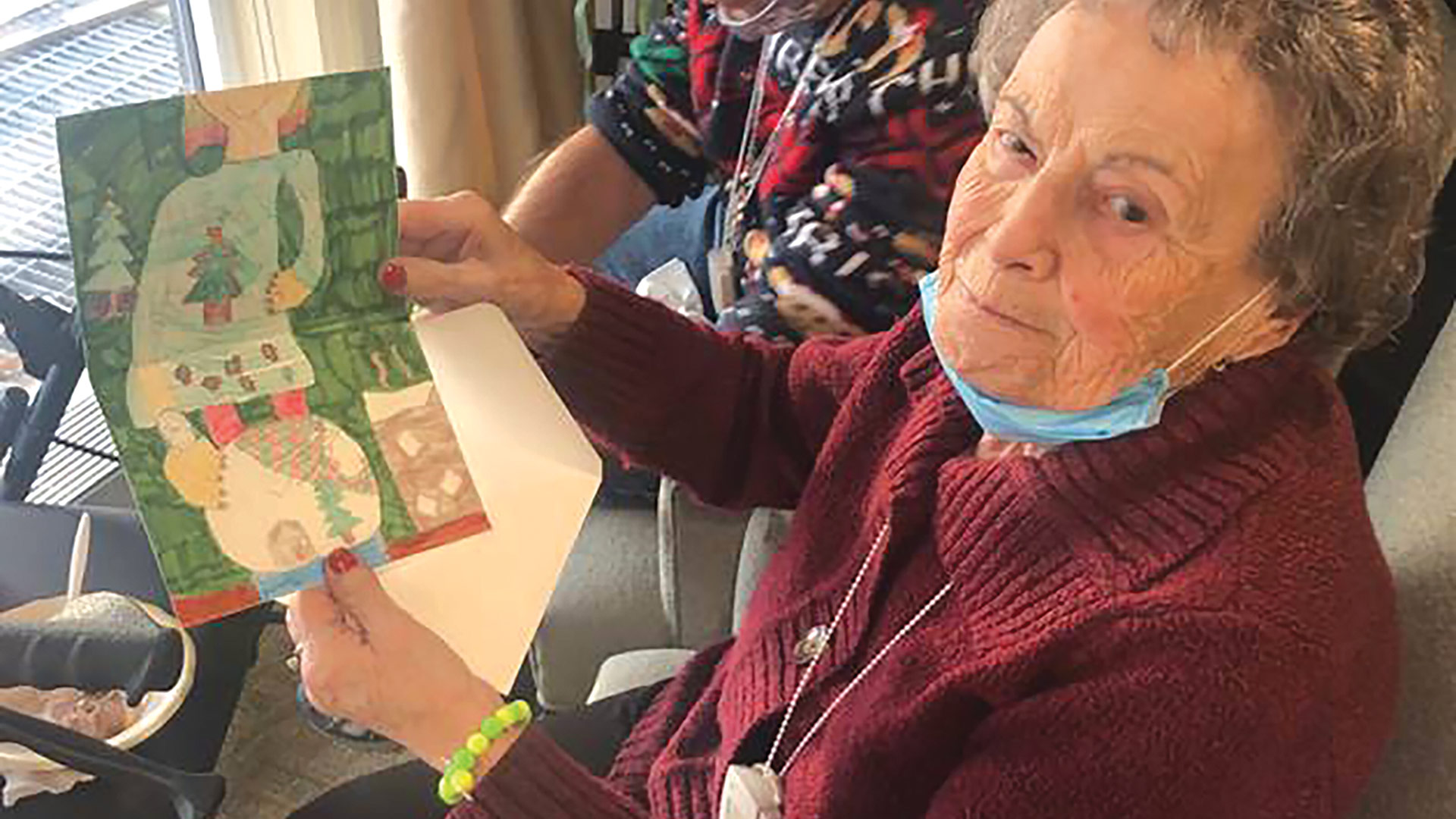



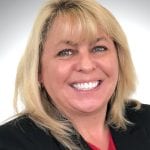
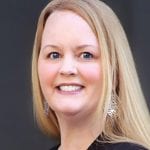
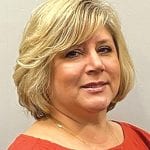
 Christopher Heights of Northampton, an assisted-living community, recently welcomed Amie Miarecki as its new marketing and admission director. Miarecki brings nearly 20 years of experience working in the health and human-services field in both Greater Springfield and Greater Boston, providing marketing, community-relations, and development expertise. She will promote the company’s mission by engaging with the community and healthcare partners to help individuals find their next home while maintaining their independence and a dignified quality of life. Miarecki holds a master’s degree in corporate and organizational communication with a specialization in leadership from the College of Professional Studies at Northeastern University and a bachelor’s degree in psychology with a minor in sociology from UMass Amherst. She is the president of the Young Professional Society of Greater Springfield, a board member of the Professional Women’s Chamber, and a committee member for both the civic and community-engagement committee of the Springfield City Library and the Greater Northampton Chamber of Commerce community-engagement committee. In addition, she holds memberships with Hampshire County Young Professionals, the Western Mass. Elder Professionals Assoc., and the Retirement Marketing Directors Assoc. of Western Mass. She is also a past recipient of the BusinessWest 40 Under Forty award.
Christopher Heights of Northampton, an assisted-living community, recently welcomed Amie Miarecki as its new marketing and admission director. Miarecki brings nearly 20 years of experience working in the health and human-services field in both Greater Springfield and Greater Boston, providing marketing, community-relations, and development expertise. She will promote the company’s mission by engaging with the community and healthcare partners to help individuals find their next home while maintaining their independence and a dignified quality of life. Miarecki holds a master’s degree in corporate and organizational communication with a specialization in leadership from the College of Professional Studies at Northeastern University and a bachelor’s degree in psychology with a minor in sociology from UMass Amherst. She is the president of the Young Professional Society of Greater Springfield, a board member of the Professional Women’s Chamber, and a committee member for both the civic and community-engagement committee of the Springfield City Library and the Greater Northampton Chamber of Commerce community-engagement committee. In addition, she holds memberships with Hampshire County Young Professionals, the Western Mass. Elder Professionals Assoc., and the Retirement Marketing Directors Assoc. of Western Mass. She is also a past recipient of the BusinessWest 40 Under Forty award.




